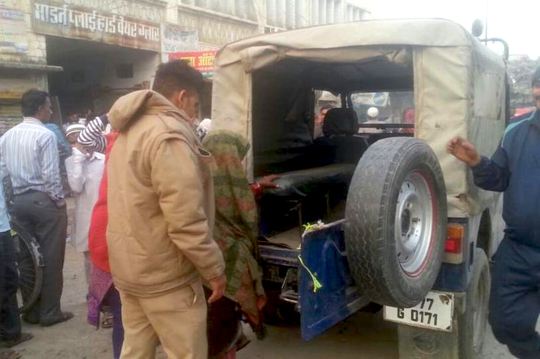Bengaluru/Mangaluru, Aug 6: Battered by torrential rains, several parts of Karnataka are facing a flood-like situation for the third consecutive year, putting lives and property at risk.
Several districts of the state's coastal, Malnad and north interior regions are receiving heavy rains and the showers are expected to continue, while there are reports of landslides in hilly areas of Kodagu and Chikkamagaluru districts.
With flood-like situation in several parts of the state, Chief Minister B S Yediyurappa, who is currently undergoing treatment for COVID-19 infection at a private hospital here, has ordered immediate release of Rs 50 crore for emergency relief.
"In wake of heavy rains in several parts of the state, I have instructed the Chief Secretary to review the situation and issued instructions to DCs (Deputy Commissioners) to closely monitor the situation & take necessary measures. Also ordered immediate release of Rs 50 crores for emergency relief purposes," he tweeted last night.
A statement released by the CMO on Thursday said, Yediyurappa has directed the district in-charge Ministers to take precautionary measures in the wake of heavy rainfall across the state.
He instructed the ministers to remain in their constituencies and tour the damaged areas and also directed them to undertake relief distribution and other necessary measures.
"Rs 50 crore has already been released and if necessary more funds would be released. The ministers can take decisions regarding emergency works," he added.
Revenue Minister R Ashoka said he had spoken to Deputy Commissioners of all the districts and given them necessary instructions to respond immediately to the situation.
He has called for a meeting of the disaster management authority later today.
Home Minister Basavaraj Bommai said he will be holding a meeting with the State Disaster Response Force (SDRF) regarding relief and rescue measures to be taken.
Parts of districts in coastal and Malnad regions are currently under red alert and rains are likely to continue there.
Officials said, "... depending on the situation we will downgrade the alerts, it (rains) is likely to reduce during the next couple of days...wind speed is also high some parts, it may also reduce."
In Kodagu district along with widespread rains, landslides have also occurred.
There have been landslides at Brahmagiri, near Talacauvery, the origin of river Cauvery.
"At least four to five people- including the Talacauvery temple priest and family are currently missing... rescue teams have reached the spot," officials said, adding that sensing danger the priest had been asked to vacate the house earlier but he did not.
This is the third consecutive year that Kodagu is facing floods and landslides.
Several parts of north Karnataka, especially the border district of Belagavi are also facing flood situation as inflow has increased in Krishna river and its tributaries due to heavy rains in neighboring Maharashtra and also in the district.
With inflow increasing in Tungabhadra river, there is flood like situation in parts of Ballari district also.
There is a similar situation in Uttara Kannada district that is battered by rains and heavy winds.
The swollen Gangavali river has caused flood like situation in parts of the district.
Due to continuous rains in coastal and Malnad region several rivers including Netravati are swollen and gates of the dams have been opened.
There are also reports of heavy rains and wind causing destruction to crops in parts of Dharwad and Haveri among other districts.
The Karnataka government had recently said it has identified 1,989 villages and over 51 lakh people in 19 districts as flood prone.
As a temporary arrangement for those who will be affected by floods, as many as 1,747 relief centres have been identified- they are schools, anganwadi centres, community centres among others, Minister Ashoka had said recently.
In August 2019, Karnataka witnessed one of its worst natural calamities when heavy floods affected 103 taluks in 22 districts, killing more than 80 people and displacing nearly seven lakh people.






Comments
@Yogesh :
And also you have the most stupidest PM of the world, who sends his 90 year old mother to the bank, with a Photographer!
@Venki : I am surprised that you didn't say..\If soldiers can..\"
Jesus {AlyhiSalam} and Mary [AlyhiSalam] were guided by the Lord of the Worlds, the Most perfect.
To continue further about their blessed life to a Sanghi bigot is a waste
The poor are suffering in q lines while the rich are enjoying
ache din for pregnant. sabka sath sabka vikas, hospital bill saved.
take modi and his entire cabinet to the international criminal court. thats the only way we can free ourselves from Hitler.
Add new comment